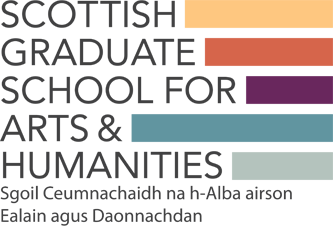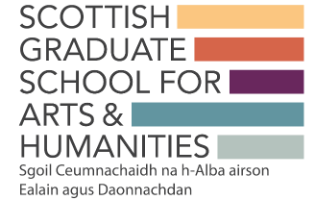Cognitive Humanities Workshop: The Interplay of Culture and Cognition Pt II
Published: 11 May 2023
This workshop explores recent insights from philosophy and cognitive science on how the mind works and considers how it illuminates our understanding of the nature and value of the arts and humanities.
Friday 23rd of June
1.30pm - 4.30pm
Dr Miranda Anderson & Dr Yasemin Hacioglu
After completing a BA in History at UCL, Miranda Anderson completed an MSc, PhD and several fellowships at the University of Edinburgh. She is now an Honorary Fellow of the University of Edinburgh and an Associate Lecturer with the Open University. She believes in the mind-expanding value of engagement with the arts and humanities. Miranda's research focuses on cognitive approaches to literature and culture. She is the author of The Renaissance Extended Mind (2015) and co-editor of four volumes on Distributed Cognition between Classical Antiquity and Modernism (2018-20). Her most recent paper is on contemporary art, '4ECognition and the Mind-Expanding Arts’ (2022).
About this Session
This workshop offers the opportunity to explore the fast-developing field of the cognitive humanities. We’ll investigate how cognitive science and philosophy offer new ways of interpreting literary, cultural and historical works and artefacts, and of understanding the processes that shape those interpretations. You’ll leave ready to recognise different cognitive humanities approaches and to apply them to your own research practices.
Day 1: Cognitive concepts and debates on topics such as: embodiment, emotion, imagery, immersion, materiality, social systems and distributed cognition.
Day 2: Working individually and in groups to develop methods to apply this to your research. Closing with individual presentations and peer and tutor feedback.
Learning Outcomes
- Understanding of theories and how to apply ideas from across the cognitive humanities for textual, art and cultural interpretations.
- Practicing critical close reading skills and analysis of material artefacts.
- Small-group learning and discussion and individual presentation skills.
- Insight into the role of the body and environmental factors– e.g language and physical aspects of the world (and resources) – in shaping the creation and interpretation of cultural artifacts and our understanding of being human.
Who might be interested?
This workshop will be of interest to doctoral researchers in all disciplines of the arts and humanities who would like to think about ideas such as the role of the body, the environment or textual and technological resources in making us human and therefore as contributing to what 'the humanities' are. It will also interest doctoral researchers wishing to explore how philosophical, cognitive scientific, and empirical research could inform their own studies.
Participant pre-requisites
No prior knowledge required. Some recommended and optional reading resources will be provided beforehand.
Participant access requirements
On day 2 there will be some minimal physical activities to explore the idea of embodiment (being in a body as subject and object) but this will be adaptable by participants to their own comfort levels.
Please note this workshop is split into two parts. The first part is online and the second part is in-person. Please register for both parts of the workshop, which are complementary: part II is the opportunity for attendees to apply the research they have learnt about in part I to their own research specialisations. Click here for Pt I.
Event contact: miranda.anderson@ed.ac.uk
First published: 11 May 2023



